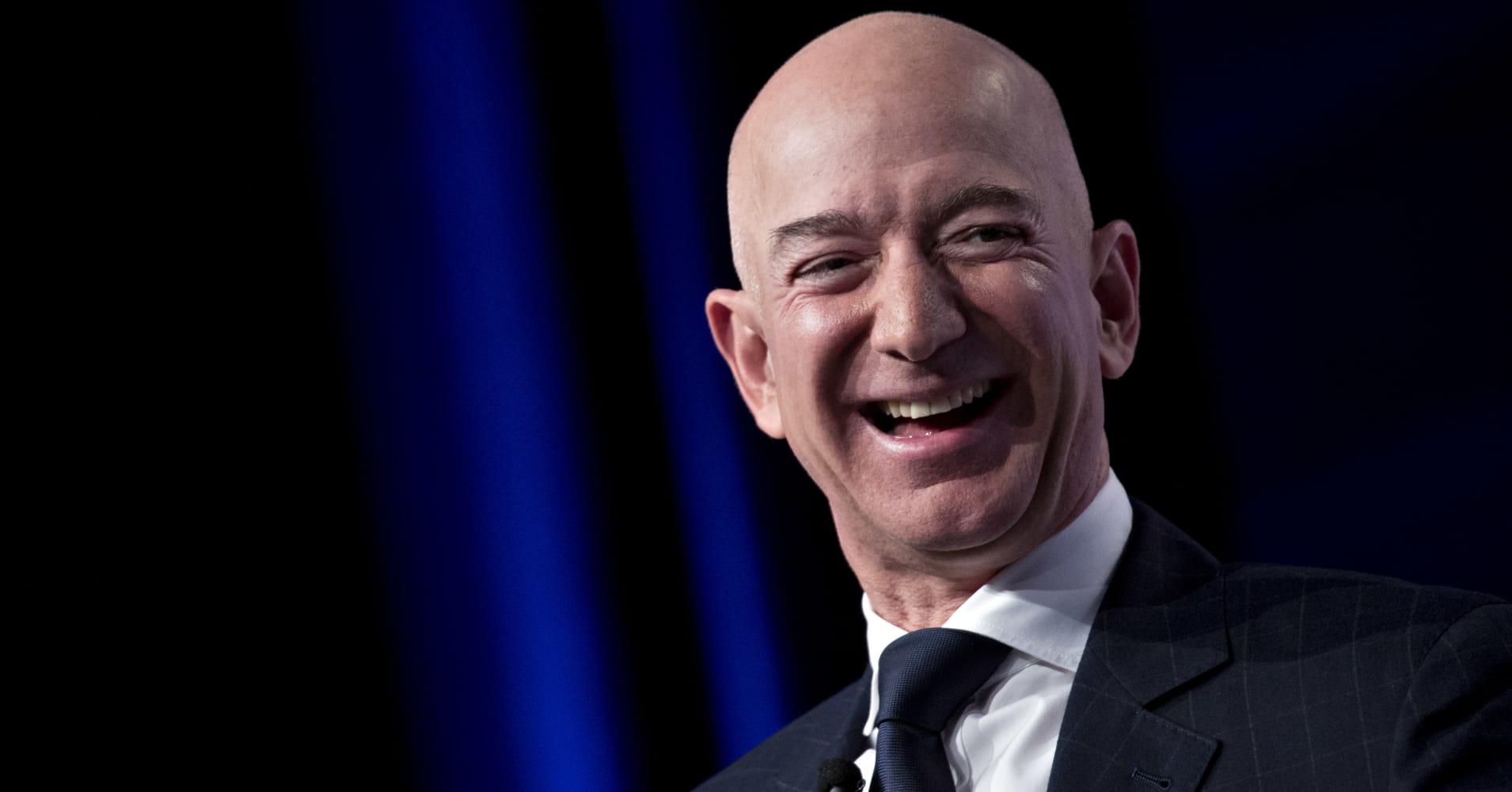
Now it's Amazon's turn at the top.
The 24-year-old company surpassed Microsoft as the world's most valuable public company on Monday, closing the trading day with a market value of $796.8 billion. Microsoft, which just passed Apple to take over the top spot a little over a month ago, is worth $783.4 billion.
It's been a bumpy ride up the charts. Amazon's market capitalization topped $1 trillion in September, but a late-year stock market collapse resulted in the worst quarter for the shares since the 2008 recession. Nevertheless, after rallying in three of the first four trading days of 2019, Amazon is No. 1.
There are a number of reasons why investors remain bullish on the stock, but it mostly comes down to avenues for expansion.
"Despite its current massive size, we see Amazon's opportunities as mostly unconstrained based on a successful track record of capitalizing on consumer and IT department spending," Brian Wieser, an analyst at Pivotal Research Group, wrote in a note to clients on Monday. He initiated coverage with a "buy" rating and a target price of $1,920, which represents an 18 percent increase from the current price.
Amazon rose 3.4 percent on Monday to $1,629.51, and the stock is up 8.5 percent in 2019.
Here are five topics that are exciting Amazon investors:
While Microsoft's cloud is growing at a faster clip, Amazon Web Sservices remains the industry juggernaut.
Annual revenue now exceeds $23 billion and AWS controls 40 percent of the public cloud market, according to Synergy Research Group.
With millions of active customers, AWS has more than 140 services for developers, and the business continues to expand geographically. Amazon cloud facilities are coming to Bahrain, Hong Kong, Italy and South Africa, and the company is vying to win a $10 billion U.S. Defense of Department contract.
AWS is also signing more big corporate customers, locking them into longer-term contracts. AWS started disclosing "performance obligations" this year, which it defines as future revenue "associated with commitments in customer contracts for future services that have not yet been recognized." In its most recent quarter, that amount grew to $17.8 billion, up from $16 billion in the second quarter and $12.4 billion in the period before that.
Amazon has expanded into a lot of different businesses over the years, but its core is still e-commerce.
Amazon accounted for roughly half of all e-commerce sales in the U.S. last year, according to eMarketer, and roughly 90 percent of Amazon's revenue comes from retail sales.
Within Amazon's retail business, its third-party marketplace is becoming more important than ever. The marketplace accounted for 31.3 percent of all U.S. online sales last year, eMarketer estimates, up 35.6 percent from the previous year.
There's room to grow. Amazon owns just 5 percent all of U.S. retail sales (including online and offline), according to eMarketer. The company has been heavily investing in other regions, like India, and is even trying to capture more brick-and-mortar sales through its acquisition of Whole Foods.
Amazon has several compelling opportunities for additional revenue growth. Advertising has broken through as an area to watch. It's part of Amazon's "Other" business segment, which grew 122 percent in the third quarter, crossing the $2.5 billion mark. More advertisers are allocating part of their budget to Amazon.
Health care is another big focus for Amazon, after last year's purchase of online pharmacy PillPack for about $1 billion. Banking is an area where Amazon could do more, and last year the company was reportedly working on a product that could resemble a checking account. It already offers a number of financial products.
Amazon has also been ramping up in Hollywood, with Amazon Studios, to produce original television shows and movies that Prime subscribers can watch. The Studios group has done deals with Nicole Kidman, Jordan Peele and producer Cheo Hodari Coker.
The company doesn't necessarily generate revenue every time someone says "Hey Alexa," but Amazon can make money through Alexa usage when people use the assistant to buy products. The service recently integrated with Microsoft Cortana.
One of the key differences between Amazon and other tech giants is its tight-knit leadership team. CEO Jeff Bezos has put together a fiercely loyal group of executives at the top of the company, with many of them having stayed at Amazon for years, if not decades.
Bezos' S-Team, which reportedly contains fewer than 20 executives, is known for its stability, a part of Amazon's culture that the CEO once highlighted during an internal staff meeting.
"I'm very happy that we don't have a lot of turnover on the S-team," Bezos said, as CNBC previously reported. "I don't intend to change that — I like you guys a lot."
Amazon has bumped into several contentious issues lately, including attacks from President Trump and the company's handling of the search for a second headquarters.
But none of those issues pose as an immediate risk to Amazon, analysts say. Contrast that with Apple's struggles in China and Facebook's privacy scandals, and Amazon's stock is seen by many as less risky.
"Amazon does not have the company-specific issues that many of the rest of the companies have," Loop Capital's Anthony Chukumba told CNBC.
WATCH: Investor Bill Miller says Amazon will double in the next three years
No comments:
Post a Comment